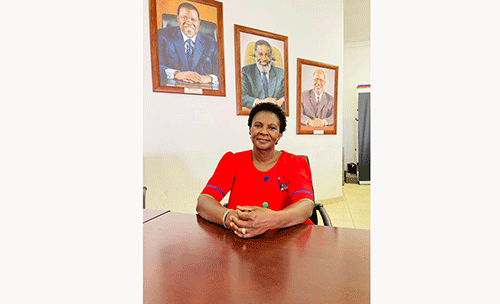Fransina Kahungu
It is imperative that us Africans place pan-Africanism at the forefront of our orientation. According to Minkah Makalani, pan-Africanism as a movement centralises “African people, both on the continent and in the diaspora, who share not merely a common history, but a common destiny”. Special reference is made to Henry Sylvester Williams as one of the forefathers of the movement in as early as the 19th century through the establishment of associations that prioritised and elevated the African.
Closer to home, the legendary Kwame Nkrumah, advocated for a united and collective Africa. This accumulated in the hosting of the All-African People’s Conference in 1958. During this time, women played an understated, yet essential role in the movement. This is testified by the formation of the Union of African Women, now known as Pan-African Women’s Organisation in Dar es Salaam, Tanzania in 1962, one year before the formation of the Organisation of African Unity, which we now know as the African Union.
Women such as Aoua Keita of Mali, Funmilayo Frances Beere Anikulapo Kuti of Nigeria, Jeanne Martin Cissé of Guinea and Pauline Clark of Ghana were at the forefront of the movement.
It is on this basis on which the Swapo Party Women’s Council (SPWC) celebrates the Pan-African Women’s Organisation’s 60th anniversary, emphasising ‘Towards the African Women’s Decade: Realising Women’s Human Capital Through Accelerated Social and Economic Development, Addressing the Scourge of Violence, Food Insecurity and Good Nutrition on The African Continent’ as the main theme. This in in realising human capital, to which we refer and envision the realisation and elevation of women’s capacity on the African continent as the primary call to action, as was the case with our foremothers. In this regard, women are elevated to counter and meet today’s social and economic challenges, which clearly require alternative solutions and enhanced competencies. Solutions and enhanced competencies are obtained through accelerated capacity-building, and social and economic development within the frame of a united Africa as per the principles of pan-Africanism. These are the avenues and catalysts for addressing the current issues facing women, and developing the desired future for the African women, the girl-child, and consequently, the boy-child.
There are a myriad of issues facing women on the continent, specifically the scourge of violence, food insecurity and a lack of good nutrition. Societal reorientation, social pressures and dynamics are some of the leading causes of the dismaying gender-based violence. However, regardless of the cause, such acts cannot, should not and will not be tolerated by women. And therefore, as women in Namibia and on the continent, we need to collectively counter this unwanted phenomenon. In line with the Ubuntu principle of umuntu ngumuntu ngabantu, meaning ‘I am because you are’, we call on our men, brothers and boys to actively showcase and act in solidarity with women to address this phenomenon. Furthermore, global geopolitical and economic dynamics have shown the precarious situation that African countries find themselves in regarding food security due to external dependencies. It is imperative that human capacity is enhanced to enable our continent to produce essential amenities and attain true sovereignty as set out by the founding fathers and mothers across Africa. Capacitation will expand women’s ability to creatively and innovatively craft and establish economically contributing entities that have the potential to provide much-needed amenities and employment. This is indeed possible, as we have seen successful examples of such endeavours. Therefore, in the spirit of pan-Africanism, we prioritise the capacitation of women to productively participate in modern agriculture and other critical economic sectors.


